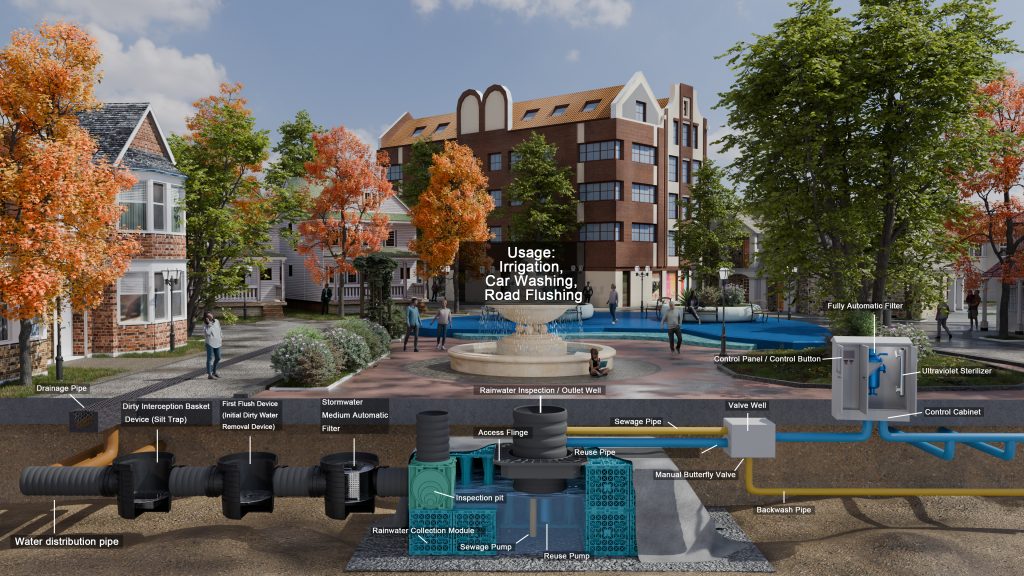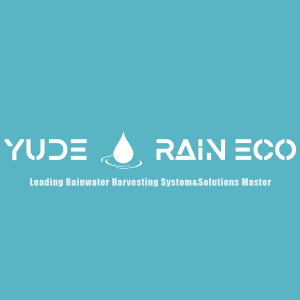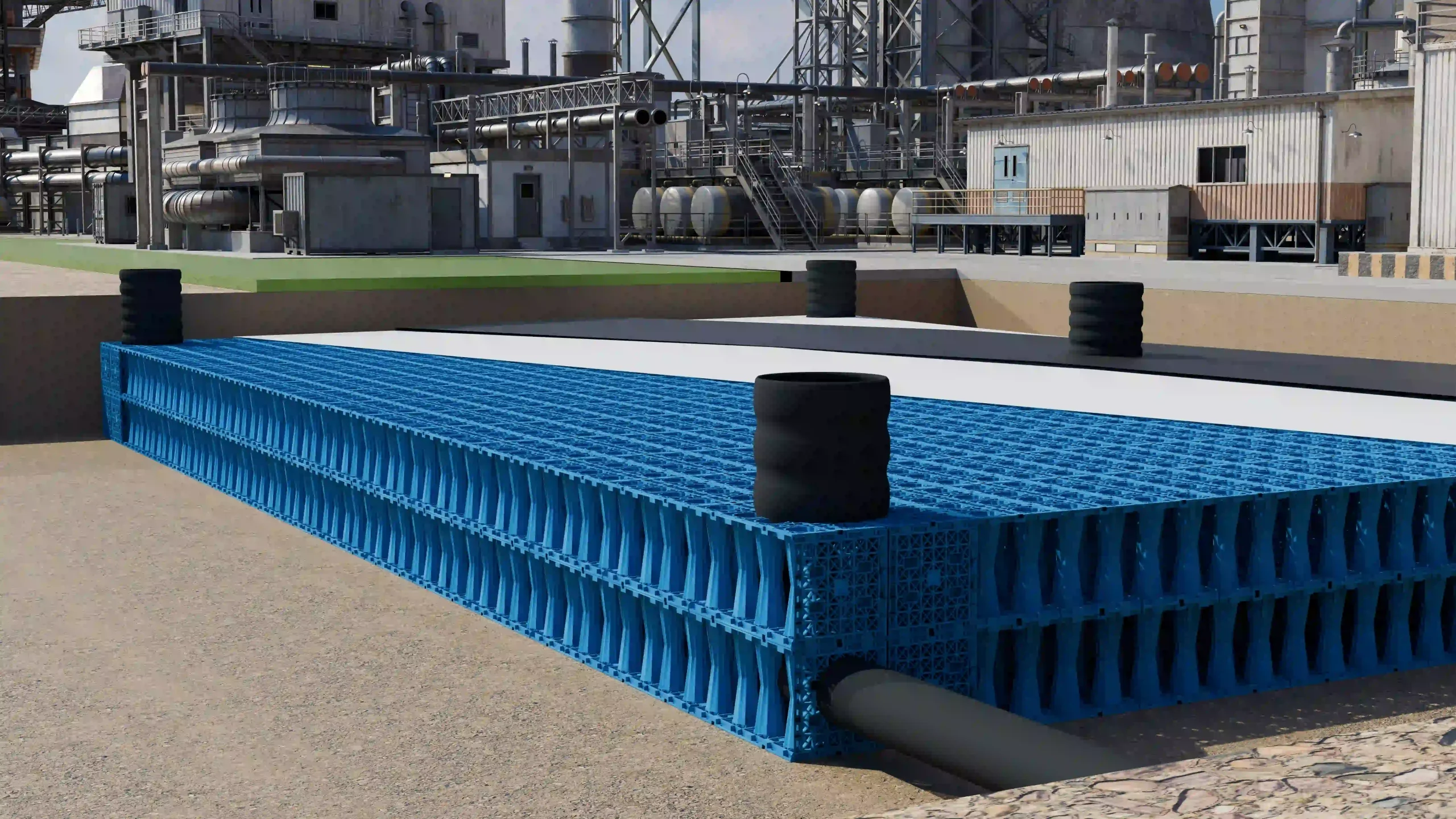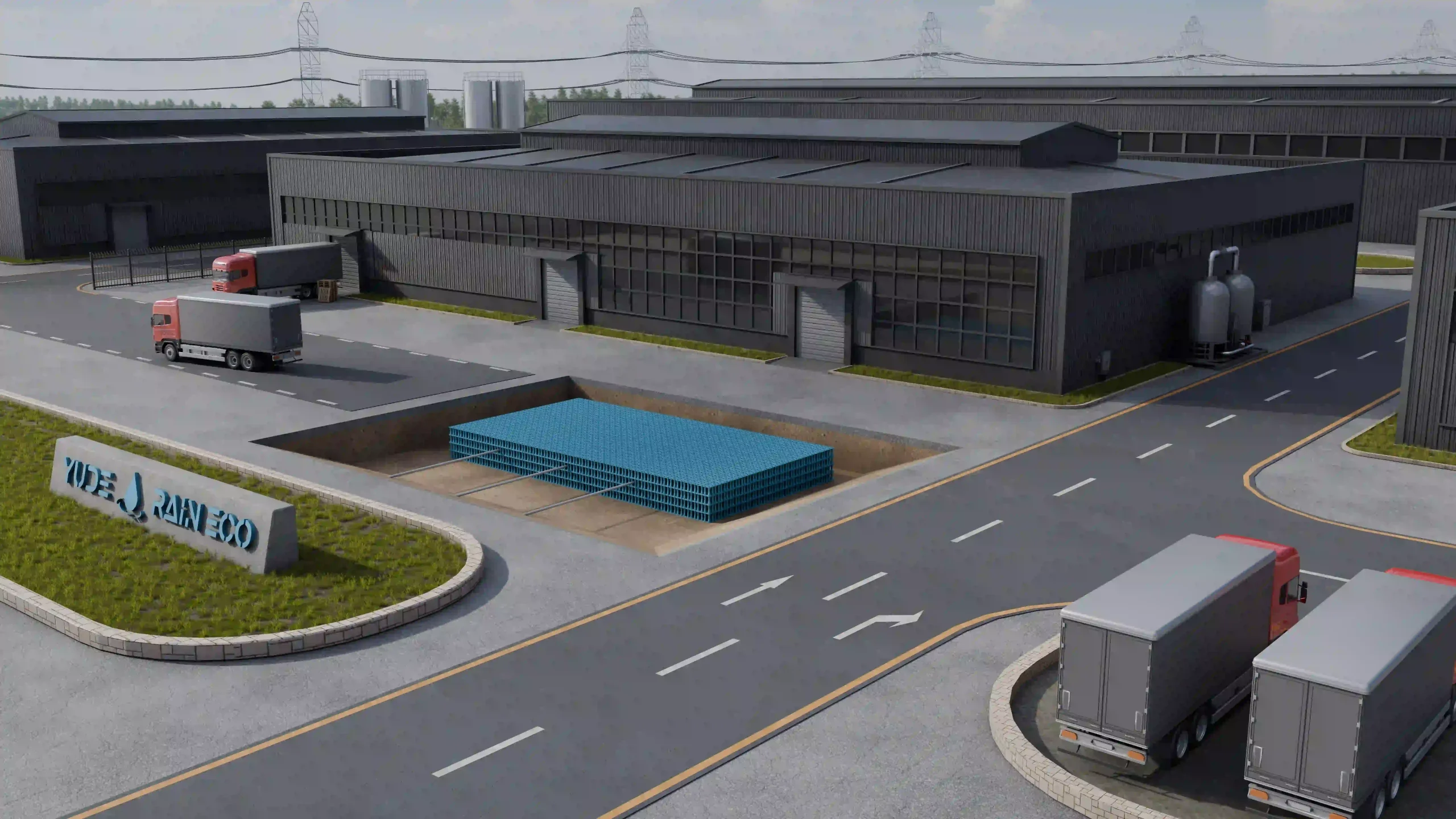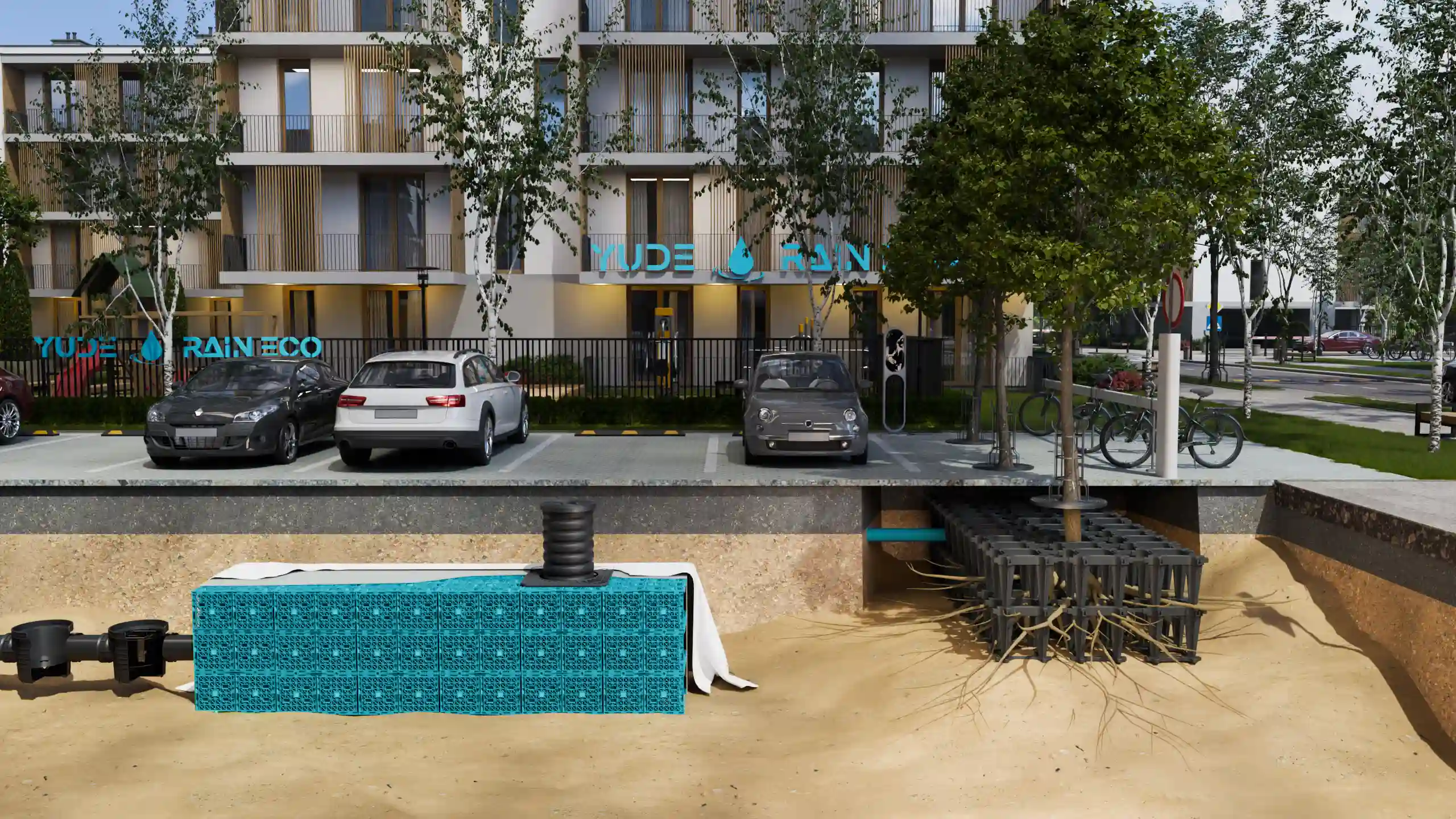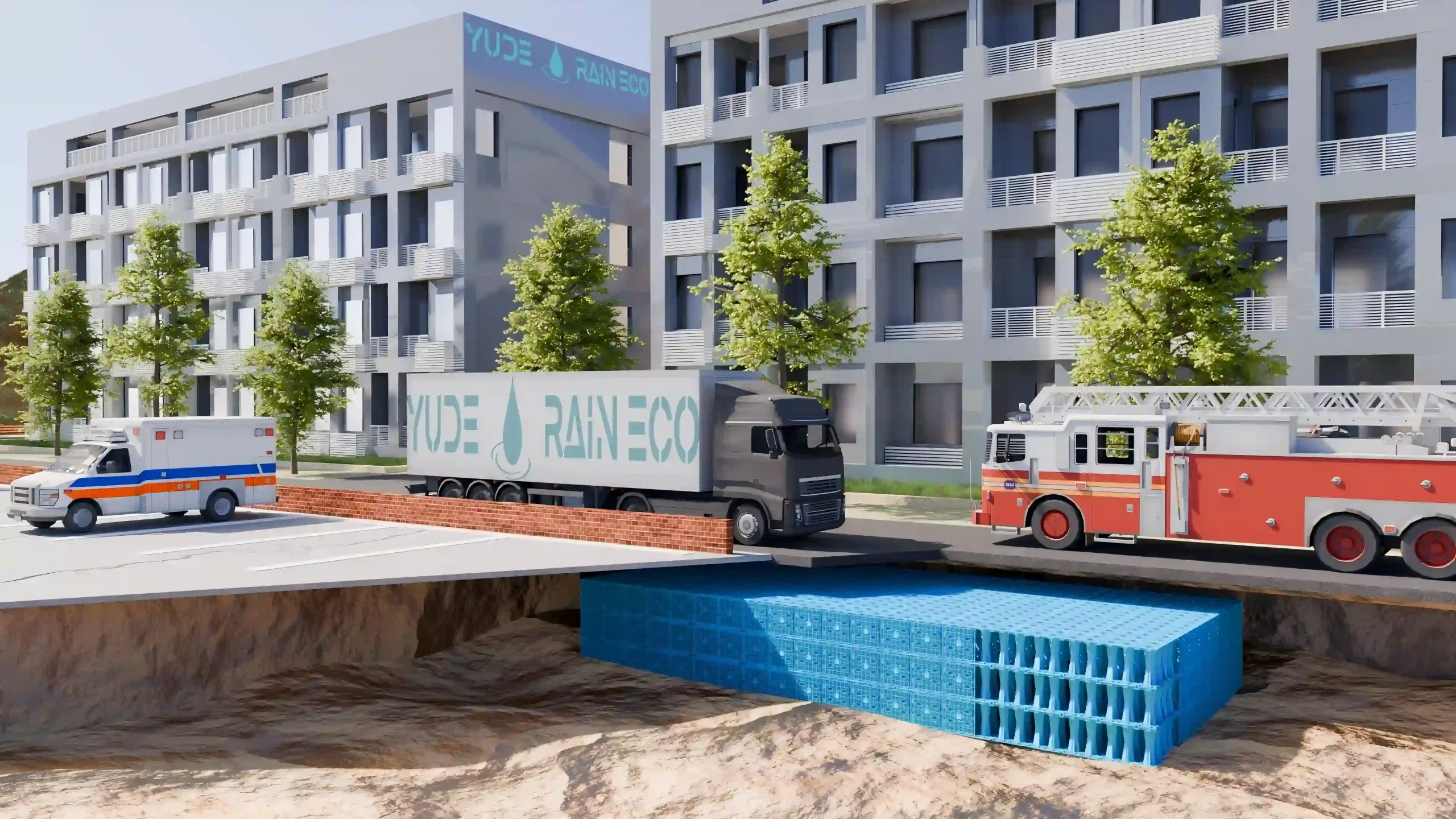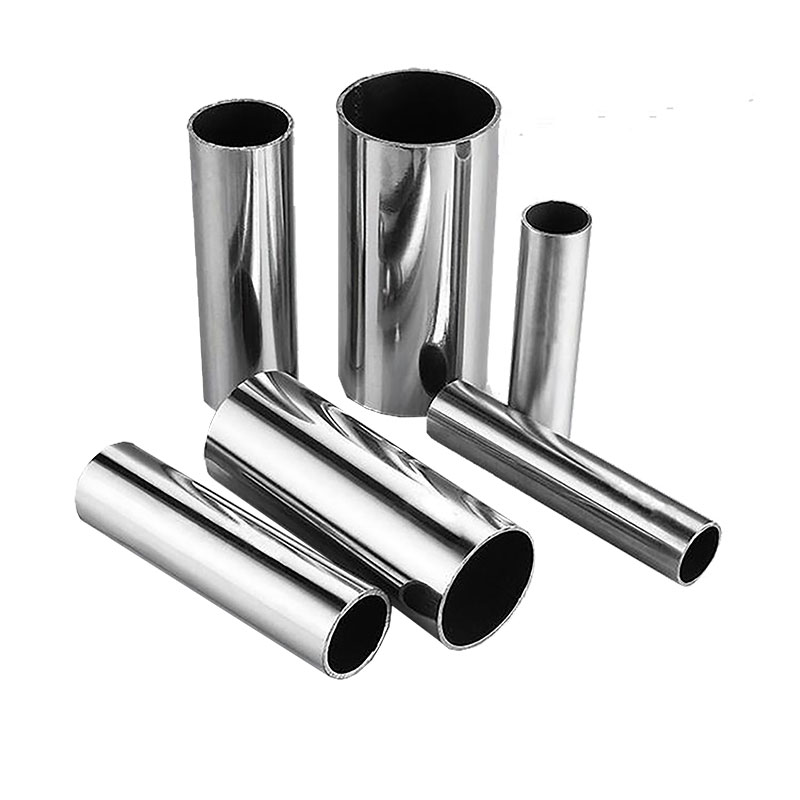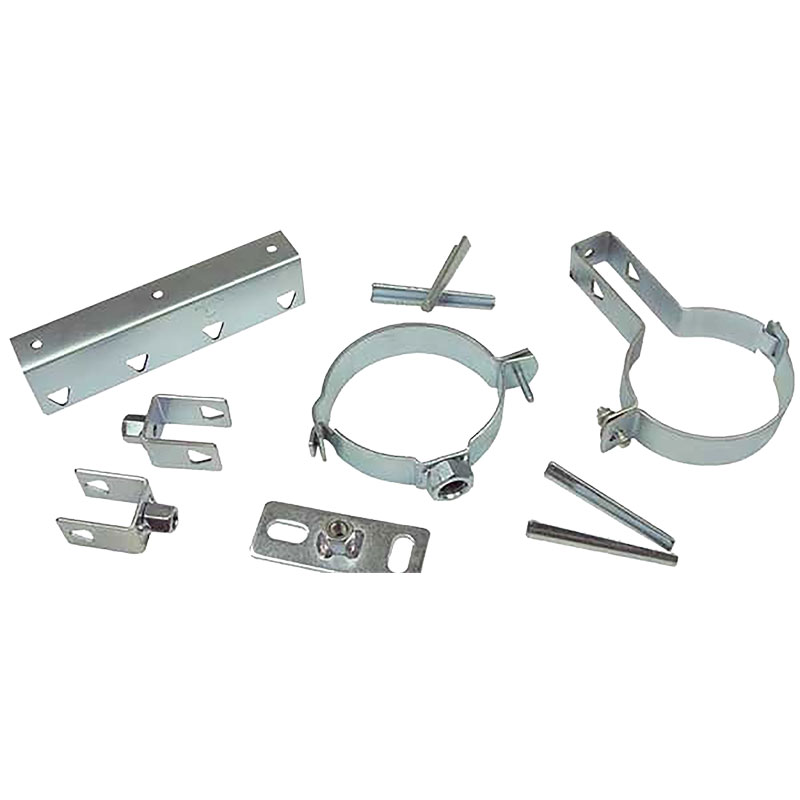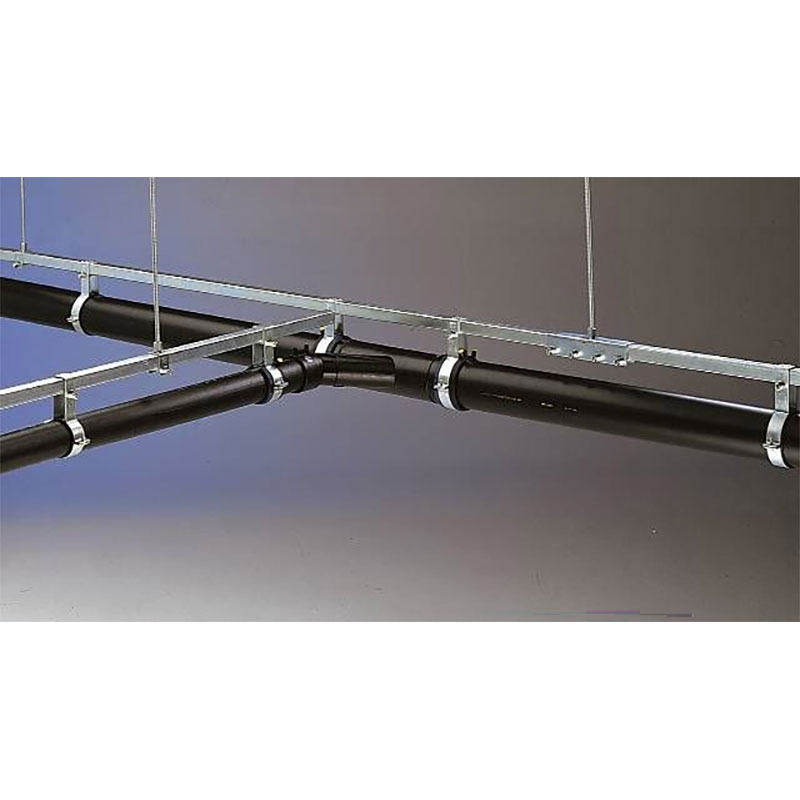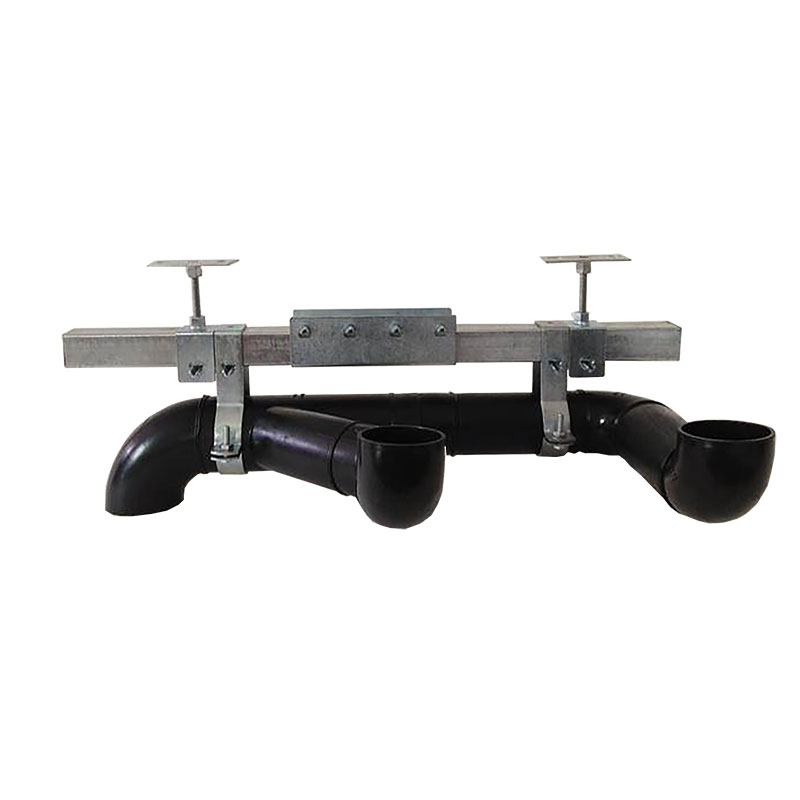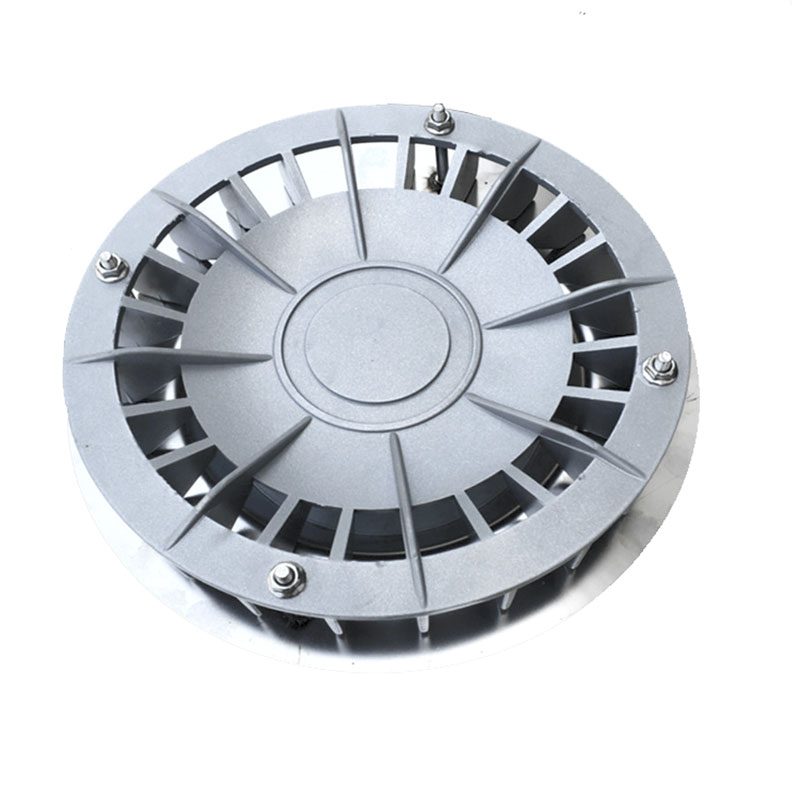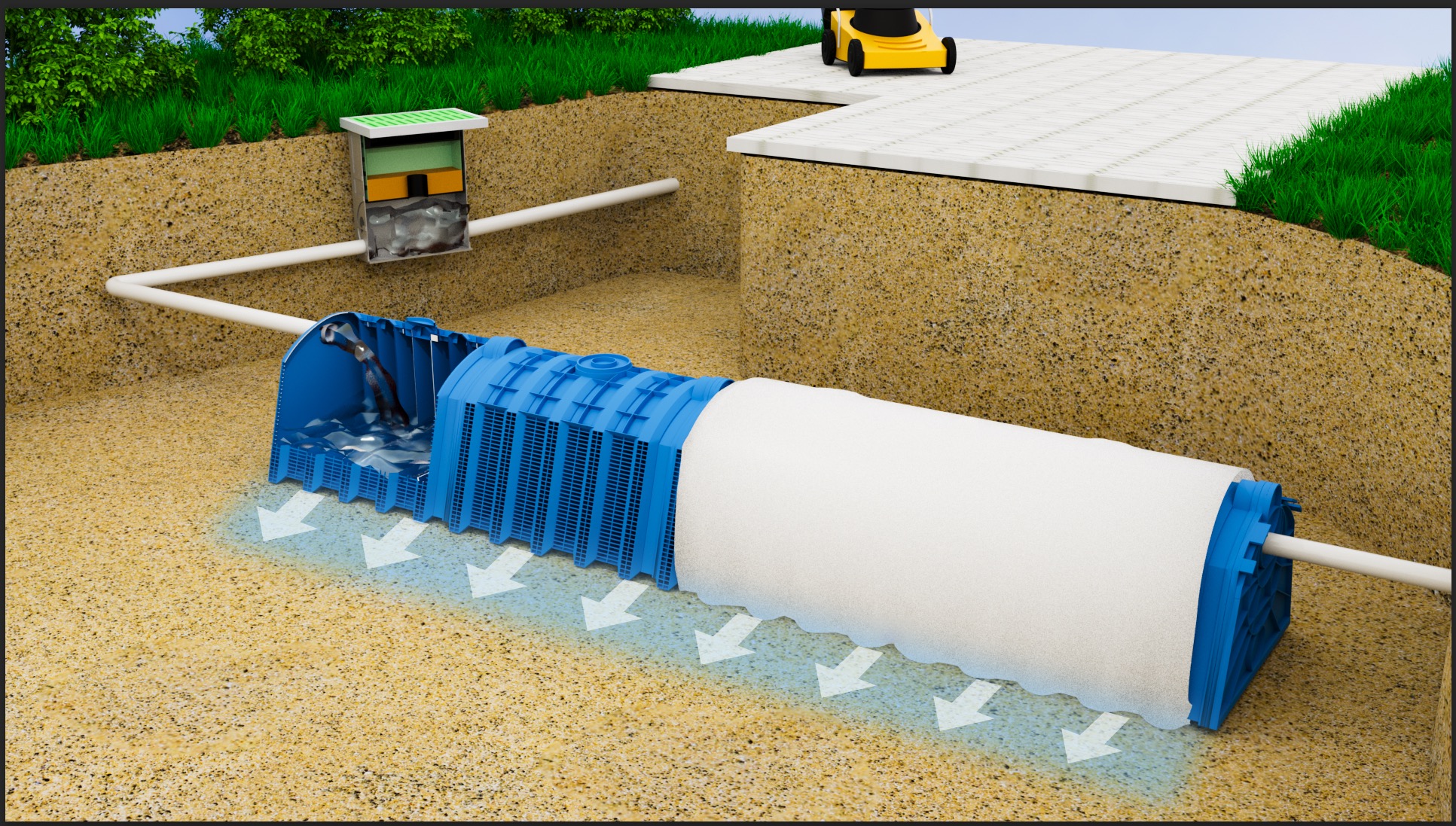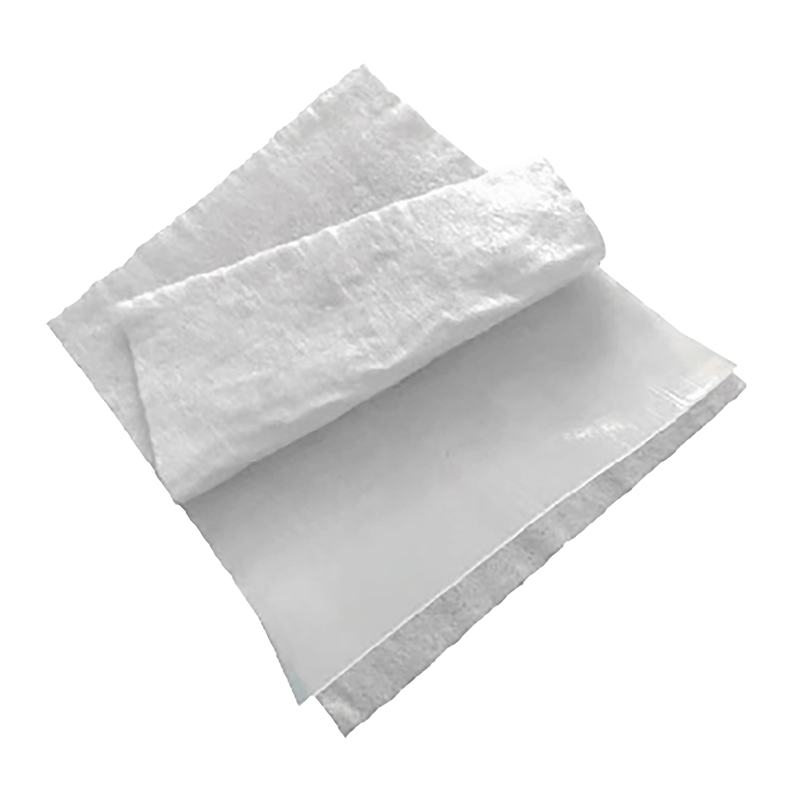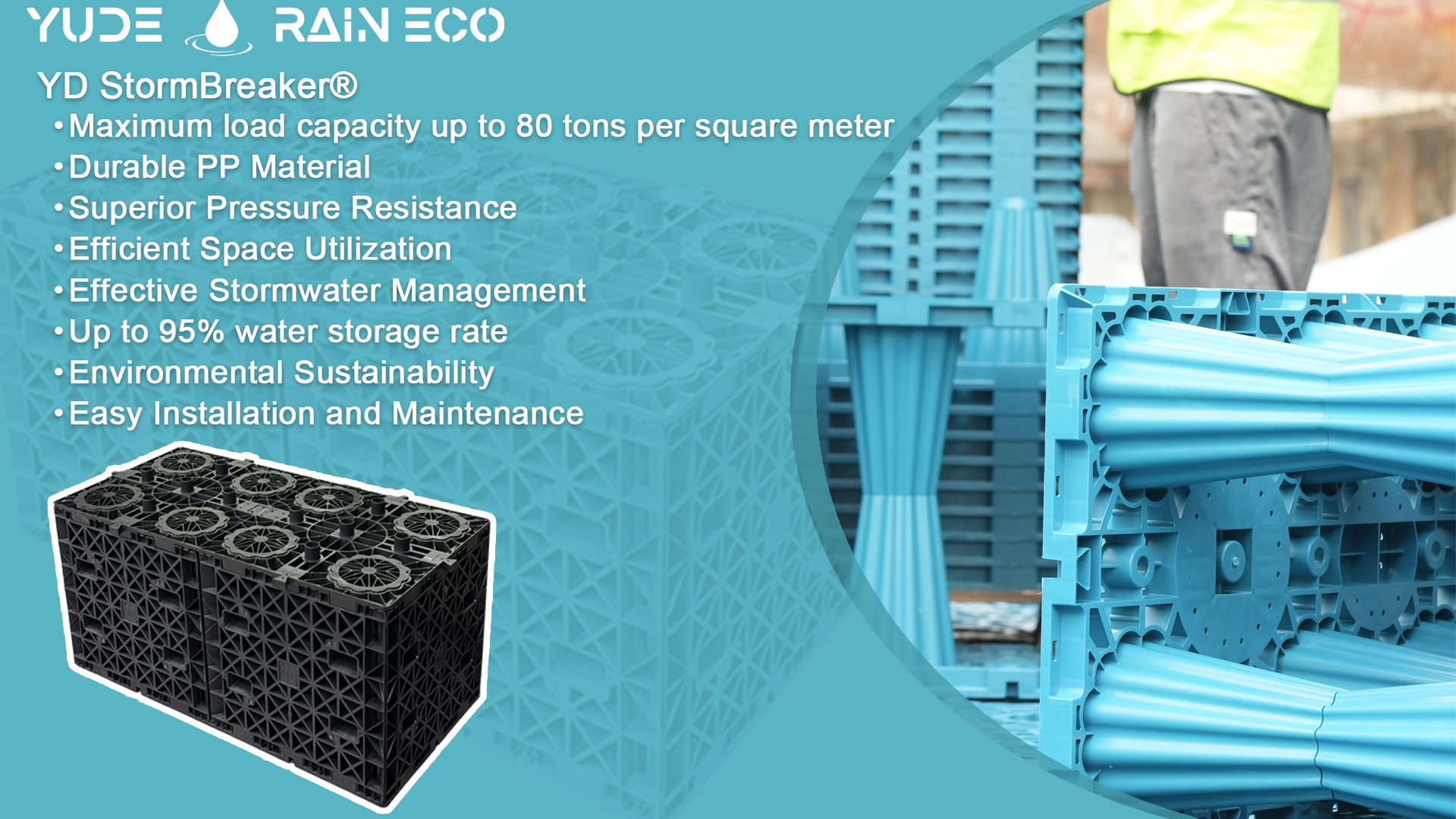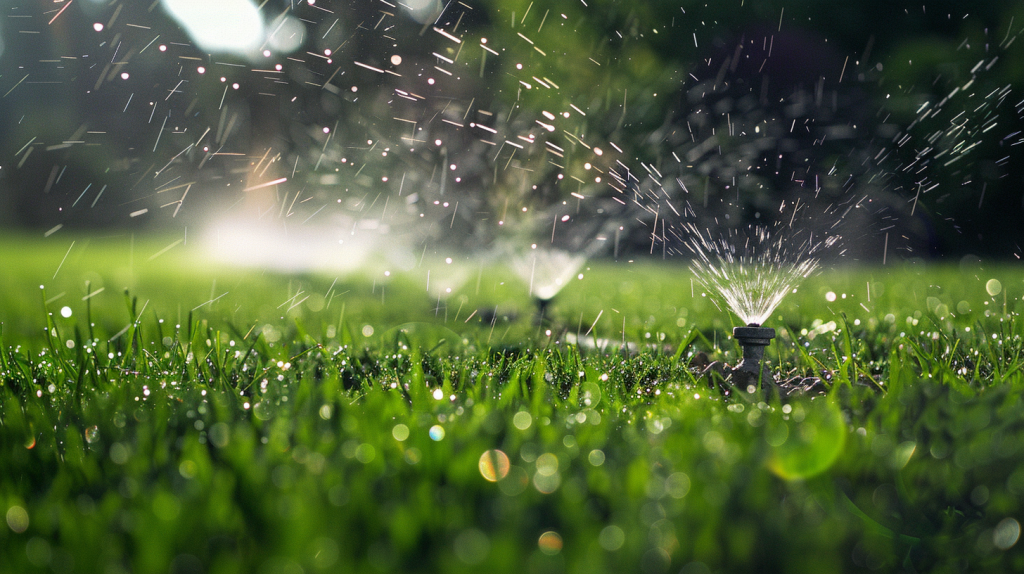Modular Rainwater Harvesting: A Smarter Way to Secure Water Resilience
Rainwater harvesting has become an essential solution for sustainable water management in both urban and rural environments. With increasing concerns over water scarcity and rising utility costs, modular rainwater harvesting systems offer a scalable, flexible, and future-ready approach to resource efficiency. Yude Rain Eco advanced modular stormwater solutions are engineered to capture, filter, store, and reuse rainwater across diverse applications—helping property owners, developers, and governments reduce water bills, mitigate flooding, and meet sustainability goals.
What Is Modular Rainwater Harvesting?
Modular rainwater harvesting refers to a scalable, flexible approach to capturing, storing, and reusing rainwater using interlocking geocellular structures—often made from durable polypropylene or high-density polyethylene (HDPE). Unlike traditional single-tank systems, modular systems consist of pre-engineered units (often called attenuation crates or infiltration cells) that can be assembled like building blocks to suit specific site requirements.
These modular units can be installed underground, above ground, or in hybrid configurations to support rainwater detention, retention, and infiltration. With options for infiltration, attenuation, and reuse, modular rainwater harvesting systems are ideal for both small-scale residential projects and large-scale commercial or municipal applications.
Key characteristics include:
-
Scalability: Systems can expand with your project size.
-
Adaptability: Custom configurations to match varying topographies.
-
Durability: Load-bearing capacities up to 60 tons/m².
-
Ease of Maintenance: Modules designed for easy inspection and cleaning.
By integrating modular rainwater harvesting systems into your stormwater management strategy, you not only reduce runoff and enhance site sustainability but also increase design efficiency and regulatory compliance potential.
Key Benefits of Yude’s Modular Rainwater Harvesting Systems
-
Scalability and Customization
Modular systems—such as our geocellular attenuation crates—can be designed for projects ranging from 1,000 to 100,000+ liters. Their interlocking structure allows tailored layouts to fit irregular footprints or phased developments. -
Cost-Efficient Water Resource Management
By capturing non-potable water for reuse, modular systems help reduce dependency on municipal supply. Rainwater collected can be used for toilet flushing, irrigation, cooling systems, and cleaning operations—delivering measurable operational savings. -
Sustainable Urban Drainage Compliance
Our modular tanks help manage runoff at the source, reducing peak flow discharge and promoting groundwater recharge. They support SuDS (UK), ABC Waters (Singapore), and LEED compliance for green-certified developments. -
Advanced Filtration for Clean, Reusable Water
Yude systems integrate pre-filtration, vortex silt traps, and optional UV disinfection, ensuring stored water meets quality standards for its intended use—be it irrigation or HVAC reuse.
Key Features of Yude Rain Eco’s Systems
-
Scalability and Customization
Modular systems—such as our geocellular attenuation crates—can be designed for projects ranging from 1,000 to 100,000+ liters. Their interlocking structure allows tailored layouts to fit irregular footprints or phased developments. -
Cost-Efficient Water Resource Management
By capturing non-potable water for reuse, modular systems help reduce dependency on municipal supply. Rainwater collected can be used for toilet flushing, irrigation, cooling systems, and cleaning operations—delivering measurable operational savings. -
Sustainable Urban Drainage Compliance
Our modular tanks help manage runoff at the source, reducing peak flow discharge and promoting groundwater recharge. They support SuDS (UK), ABC Waters (Singapore), and LEED compliance for green-certified developments. -
Advanced Filtration for Clean, Reusable Water
Yude systems integrate pre-filtration, vortex silt traps, and optional UV disinfection, ensuring stored water meets quality standards for its intended use—be it irrigation or HVAC reuse.
How Modular Rainwater Harvesting Systems Work: Components and Layouts
Modular rainwater harvesting systems are composed of interlocking geocellular units or “crates” made of recycled or virgin polypropylene (PP), encased in geotextile wraps or waterproof membranes, and installed underground. The system works in three core stages:
-
Collection – Rainwater is captured from rooftops or paved surfaces and diverted via pipes or siphonic roof drainage systems.
-
Filtration & Pre-Treatment – Sediment filters, vortex filters, or silt traps are installed at inlets to remove debris and organic matter.
-
Storage & Utilization – Clean water is retained in modular underground tanks for use in irrigation, flushing, cleaning, or recharge.
These components are scalable and customizable, making them ideal for integration into smart building systems and green infrastructure.
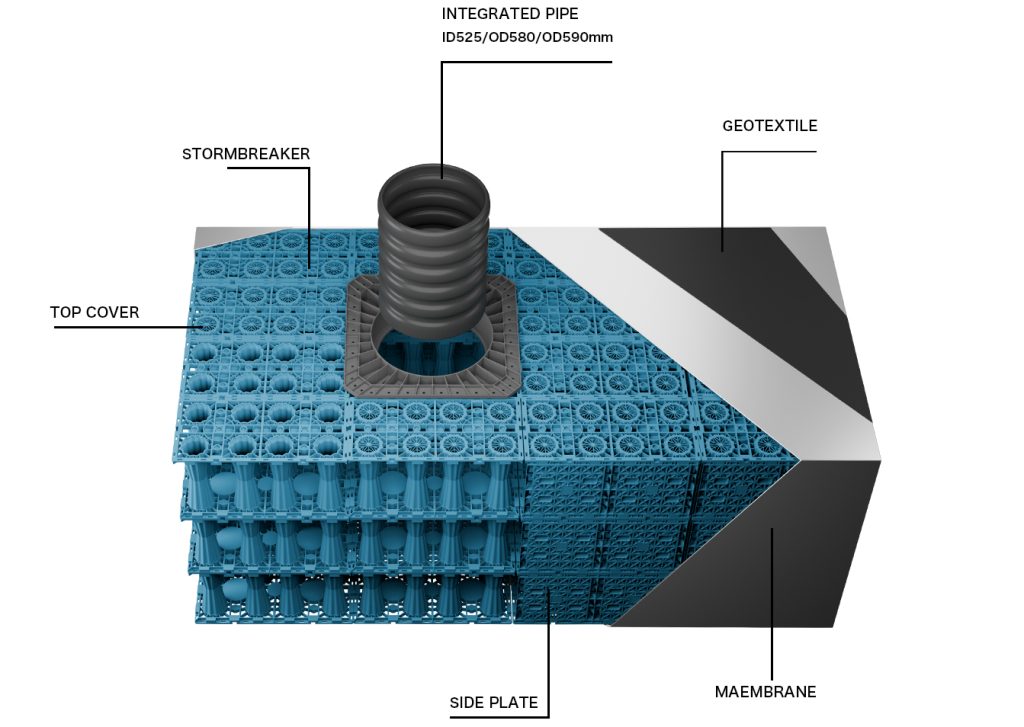
Sector-Specific Applications of Modular Rainwater Storage Systems
-
Residential: Reduce household water bills by collecting rooftop runoff for landscaping, flushing, or washing. A system as small as 5m³ can support daily non-potable use for a family of four.
-
Commercial & Retail: Shopping malls, office complexes, and hotels use modular systems to cut irrigation costs and earn green building credits.
-
Municipal Infrastructure: Yude’s systems are applied in parks, plazas, and roadside green belts to enhance sponge city resilience and stormwater detention.
-
Industrial Parks: Large-scale modules (2000–10,000 m³) are used for cooling water reuse, dust suppression, and flood control in logistics hubs and factories.
-
Educational & Healthcare Facilities: Reduce costs and teach sustainability by reusing rainwater for sports fields, toilets, or cleaning.
Industry Insights: Why Modular Rainwater System Matter for Modern Infrastructure Projects
1. Modular Rainwater Harvesting in Commercial Site Development
In commercial projects such as shopping centers, business parks, and industrial warehouses, underground modular rainwater harvesting systems provide a compact yet powerful solution to manage stormwater runoff without consuming valuable surface area. By storing runoff underground in geocellular modules and slowly releasing it or reusing it for landscaping and HVAC, businesses benefit from:
-
Reduced stormwater taxes and discharge fees
-
LEED or BREEAM credit accumulation
-
Resilience against climate-induced flooding
Yude Rain Eco supports architects and developers with detailed runoff simulations, CAD layouts, and compliance-ready documentation to streamline approval processes.
2. Green Infrastructure & Urban Resilience Applications
Cities and municipalities worldwide are integrating modular rainwater retention systems into green infrastructure master plans. These systems allow engineers to meet SuDS (Sustainable Drainage Systems) and low-impact development (LID) standards by capturing rainwater at the source and storing it underground.
Benefits for urban planners include:
-
Surface space freed for recreation or green roofs
-
Flood mitigation through controlled discharge
-
Pollution reduction by capturing first flush runoff
-
Long-term groundwater replenishment in aquifer-sensitive zones
Municipal clients are increasingly looking for plug-and-play systems that deliver both environmental performance and cost-effectiveness. Yude’s modular tanks have been adopted in sponge city projects, public parks, and roadway drainage retrofits.
3. Industrial Facilities: Managing Large-Volume Stormwater Sustainably
In industrial parks and logistics hubs, managing large roof and paved surface runoff is a regulatory and operational necessity. Yude’s high-capacity modular stormwater storage tanks allow industries to:
-
Comply with stormwater discharge regulations
-
Harvest rainwater for cleaning, cooling, and dust suppression
-
Prevent flooding in low-lying loading docks and storage yards
Modules can be installed under roads, parking lots, or green areas without disrupting daily operations—offering seamless integration into new builds or retrofits.
4. Export-Ready Modular Systems for International Projects
For clients in regions like Southeast Asia, the Middle East, and Latin America, Yude Rain Eco provides export-ready modular solutions that comply with local codes (e.g., Australian NCC, US EPA guidelines, EU SuDS). From 45T to 60T loading capacity, our systems can be customized for climate zones ranging from tropical to arid.
We support global projects with:
-
Multilingual technical documentation
-
BIM and CAD-ready system files
-
Logistic planning and containerized shipping
-
Online consultation and installation supervision
Our systems are already serving infrastructure projects in over 20 countries—from AI parks in China to logistics parks in Central Asia.
Economic Benefits for Commercial Properties and Public Infrastructure
In large-scale developments, modular systems offer significant ROI over time by:
-
Reducing stormwater fees in jurisdictions with impervious surface tax policies
-
Offsetting potable water demand in landscape maintenance and industrial processes
-
Qualifying for water efficiency credits under LEED, BREEAM, and WELL certifications
-
Mitigating flood-related losses, protecting assets and infrastructure
For example, a 5,000 m² commercial roof in Southeast Asia with 1,500 mm annual rainfall can harvest over 7 million liters/year, saving upwards of $10,000 USD annually in water costs and fees.
Why Choose Yude Rain Eco?
Yude Rain Eco is at the forefront of innovation in rainwater harvesting solutions. Our commitment to quality, sustainability, and customer satisfaction sets us apart. With a rich portfolio of patents and a focus on green technology, we provide solutions that not only meet but exceed the demands of modern water management.
- Proven Track Record: Over 2,000 systems supplied and installed across China.
- Significant Water Savings: One billion liters of water saved annually.
- Environmental Impact: Over 10 million kgCO2e of carbon saved per year.
Start Building Smarter Water Infrastructure with Yude Rain Eco
Whether you’re managing a residential complex, designing a commercial plaza, or planning a municipal project, Yude Rain Eco’s modular rainwater harvesting systems offer the flexibility, durability, and regulatory compliance you need.
- Tailored system layout and technical support
- Global delivery with fast lead times
- Proven performance in over 2,000 installations
Talk to our engineering team today for a free project consultation.
Email: [email protected]
Visit us: www.yuderaineco.com
FAQ
How Much Does a Rainwater Harvesting System Cost?
The cost varies based on complexity and capacity. Residential systems range from a few hundred to several thousand dollars, while commercial systems are generally more expensive due to larger capacities and advanced components.
Difference Between Residential and Commercial Rainwater Harvesting Systems?
Residential systems are simpler and designed for individual homes, focusing on reducing household water bills. Commercial systems cater to larger buildings, with larger storage capacities, advanced filtration, and integration with building management systems.
How Much Water Can a Complete Rainwater Harvesting System Save?
Residential systems can save from 1,000 to 50,000 gallons annually. Commercial systems can save over 100,000 gallons annually, depending on the size of the catchment area, local rainfall, and system efficiency.
How Much Can I Save on My Water Bill?
Savings depend on water usage, collected rainwater, and local water rates. Residential users can save 30-50% on water bills, while commercial users can save over 50%, making rainwater harvesting financially beneficial over time.
Can modular systems be retrofitted into existing buildings?
Yes. Yude’s modular units are compact, lightweight, and can be installed with minimal disruption, making them suitable for retrofitting beneath parking lots, courtyards, or green spaces.
How do I know what tank size or configuration I need?
Our team will calculate your ideal system based on local rainfall data, roof area, runoff coefficients, and usage needs. We provide CAD layouts, hydraulic simulations, and quantity take-offs.
Are modular systems suitable for cold climates?
Yes. Yude Rain Eco systems can be insulated or buried below frost lines, and the underground location protects water from freezing, unlike above-ground tanks.
Can the harvested rainwater be used for drinking?
Technically yes, with proper multi-stage filtration and UV sterilization. However, this depends on local regulations. Most clients use rainwater for non-potable purposes like irrigation, flushing, or cooling.
What is the maintenance requirement?
The system requires only basic inspection of filters and inlets every 6–12 months. No mechanical components inside the modular tanks reduce long-term maintenance costs.
How long does it take to install a modular system?
Installation time varies by site and size, but a 100 m³ system can typically be installed within 3–5 days using standard excavation and backfill methods. We provide layout plans, installation manuals, and remote engineer support for overseas clients.

